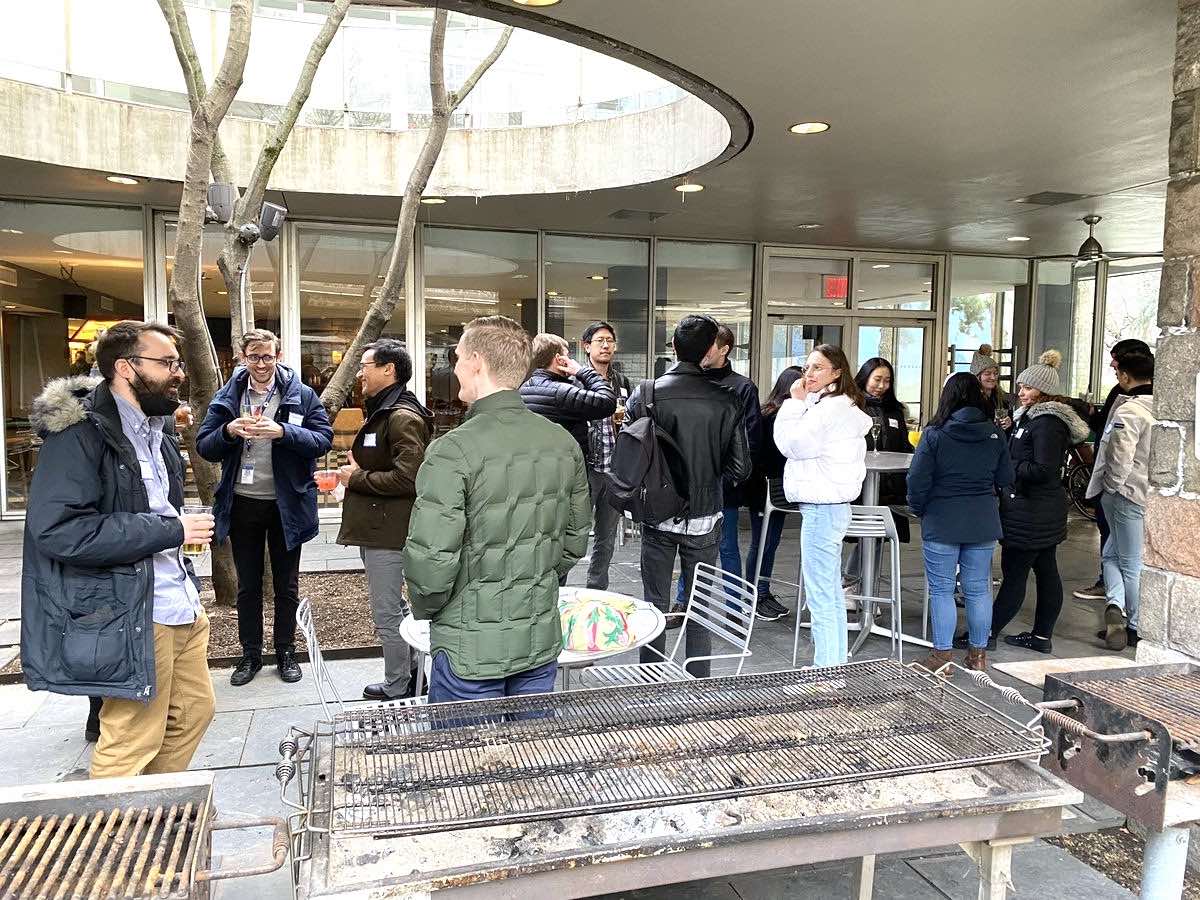Peer-Mentoring for a Postdoc Community
BIOME (Building Interactive Opportunities for Mentorship Education) is a mentorship learning community at RockEDU that connects members of the Tri-I (Rockefeller, Sloan Kettering, and Weill Cornell) around the professionalization and development of these skills. The Postdoc Buddy System was a piloted peer-mentorship program implemented through BIOME advisory board member and postdoctoral fellow, Kevin Gonzales. This was built in partnership with Adriane Otopalik from The Rockefeller University’s Postdoctoral Association, and RockEDU Mentorship and Outreach specialist, Lizzie Krisch.
Inspiration
The Postdoc Buddy System was born out of a desire to build a peer mentorship program for postdocs. The program was specifically designed to help postdocs settle into the larger Rockefeller community and gain professional and social support.
Logistics
This Postdoc Buddy System program was first piloted in March 2022. In the hopes of connecting senior postdocs and junior postdocs in different labs, we sent out a survey to gauge needs and general interest. To accommodate the interest for the program, particularly from junior postdocs, we created six “pods” where one senior postdoc was paired with three junior postdocs. All ”buddies” were added to the BIOME Slack space where they were placed in a common channel for the program and pod-specific channels for easy coordination and mingling. The senior postdoc was responsible for scheduling four pre-planned activities, impromptu Slack conversations and in-person gatherings. The coordinators of the Postdoc Buddy System, Kevin Gonzales, Adriane Otopalik, and Lizzie Krisch were responsible for creating activities, and checking in two “pods” each through regular surveying and 1-1 conversations with senior postdocs.
Orientation, Meet and Greet and Activities
Following the survey signup, we held orientation sessions to lay out the details of the program to participants. A separate session was held for senior and junior postdocs, and after, postdocs were made to confirm their participation in the program.
Postdocs were matched into pods based on their answers to the interest survey, ensuring as much as possible that 1) overlapping professional needs and social interests are present within each pod and 2) each postdoc within a pod are from different labs. The matchings were revealed to participants in a meet and greet mixer held at the Faculty Club at the beginning of the program.

Members of the PDA buddy system during our kickoff “meet and greet” event.
Activity 1: Icebreaker. The first planned activity was an informal icebreaker session for pod-mates to get to know each other and open lines of communication regarding professional and personal interests. A guide was provided to senior postdocs to help facilitate the session if needed. This session was also used to plan and lead up to the second activity.
Activity 2: Social Activity. This activity was designed to encourage bonding between postdocs in the same pod and make them feel comfortable with each other. Planning for the activity was left to each pod to accommodate pod-specific interests. Postdocs decided to go for a dinner in the city or a visit to Little Island.
Activity 3: Meet an HOL. The third activity, Meet an HOL, was to provide postdocs an opportunity to interact with HOLs that are not their direct supervisors. We reached out to a few HOLs that have previously shown interest in mentorship and career development, and Profs. Daniel Kronauer, Shixin Liu, Gaby Maimon, Luciano Maraffini, Viviana Risca and Agata Smogorzewska met with the postdocs for a casual conversation about life in science, academia and mentorship. Despite the narrow common availabilities between postdocs and HOLs, pods were successfully matched with each HOL. Senior postdocs were also provided with a guide for this activity to facilitate the discussion if needed.
Activity 4: Creating an Individual Development Plan. The fourth activity was scheduled with RU’s career development advisor, Dr Andrea Morris. This activity was meant to incorporate professional development as a main aspect of the program. During this meeting, postdocs were encouraged to explore career options and the provided resources to pursue various professional paths.
Coffee Sessions and Closing Activity
In addition to the four structured activities, pods were encouraged to meet up casually for sponsored coffee sessions which was supported by the HHMI Gilliam Fellowship grant for Diversity and Inclusion obtained by the Kronauer Lab.
At the end of the program, all participants were invited for one final gathering over BBQ and drinks at RU’s Faculty Club.
Feedback Survey
A final survey was administered to both junior and senior postdoc participants to assess the program’s effectiveness and find points for improvement. The program was met with very positive feedback from all postdoc participants. Most participants found that connecting and interacting with fellow postdocs through the program’s social activities to be most beneficial, and were excited for more activities that could encourage interactions across pods. The Meet an HOL event was also met very positively, and several postdocs even wanted to meet a second HOL. As a testament to the program’s success, all participants expressed that they would highly recommend joining future iterations of the program to other postdocs.
Resources
Interest survey (sent campus-wide to recruit participants and gauge interest)
Guides for senior postdocs for #1 Icebreaker and #3 Meet an HOL activities
